Living room sofa ideas - 18 ways to turn your sofa into something special
Whether you are buying new or updating an existing sofa make sure it is the star of the show in your living room
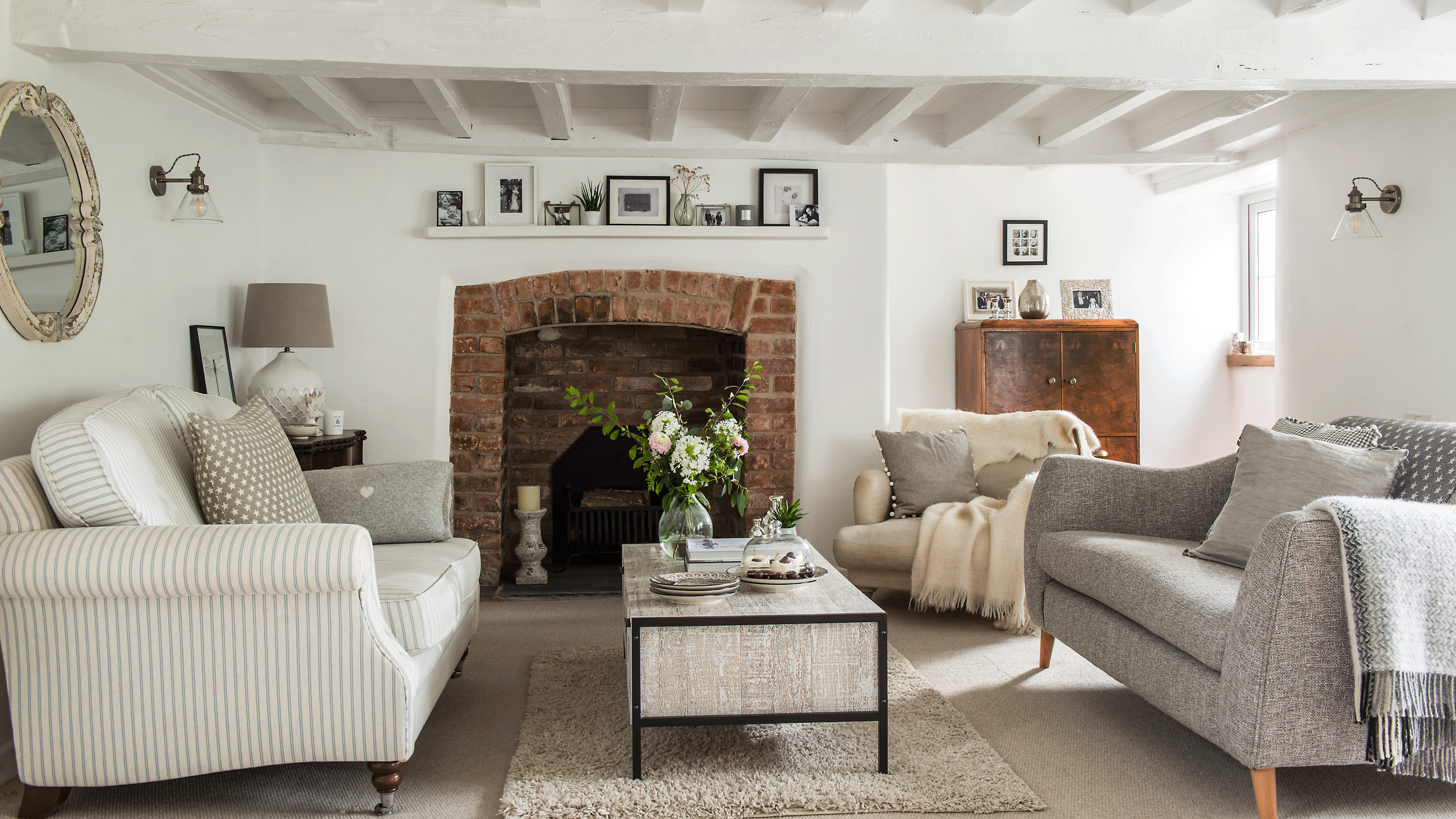

When asked to describe a living room, it's a safe bet that a sofa will be the first thing most people mention. Usually, the biggest (and often most expensive) piece of furniture in the room living room sofa ideas can make or break a room.
The size of the sofa means it will always have a huge impact on the look of a room. So choosing a comfy sofa that looks great and suits the space too is key. Picking the best sofa for your living room is the first step, incorporating it into your living room ideas comes next.
To ensure you nail both you need to consider how you plan to use your living room seating ideas. Are you creating a comfortable hangout for the family? Or a sleek grown-up room for the adults to retreat into? Each will impact the design and style of sofa you choose.
Living room sofa ideas
Once you've settled on the ideal sofa shape and size, you can start playing with colour, layout and the best part - accessories.
Cushions and throws are an easy way of adding extra colour to your sofa. Picking complementary colours and patterns that match an existing colour scheme will tie everything together.
‘As a sofa should be a purchase you will love for years to come, consider shapes, colours and patterns carefully to ensure you opt for a style that will work not only with your current scheme, but also transfer to a new look. If in doubt, opt for a neutral design where you can add patterns, colours and textures as and when trends change,' says Suzy McMahon, Buying Director at Sofology.
1. Create a serene setting a sofa duo
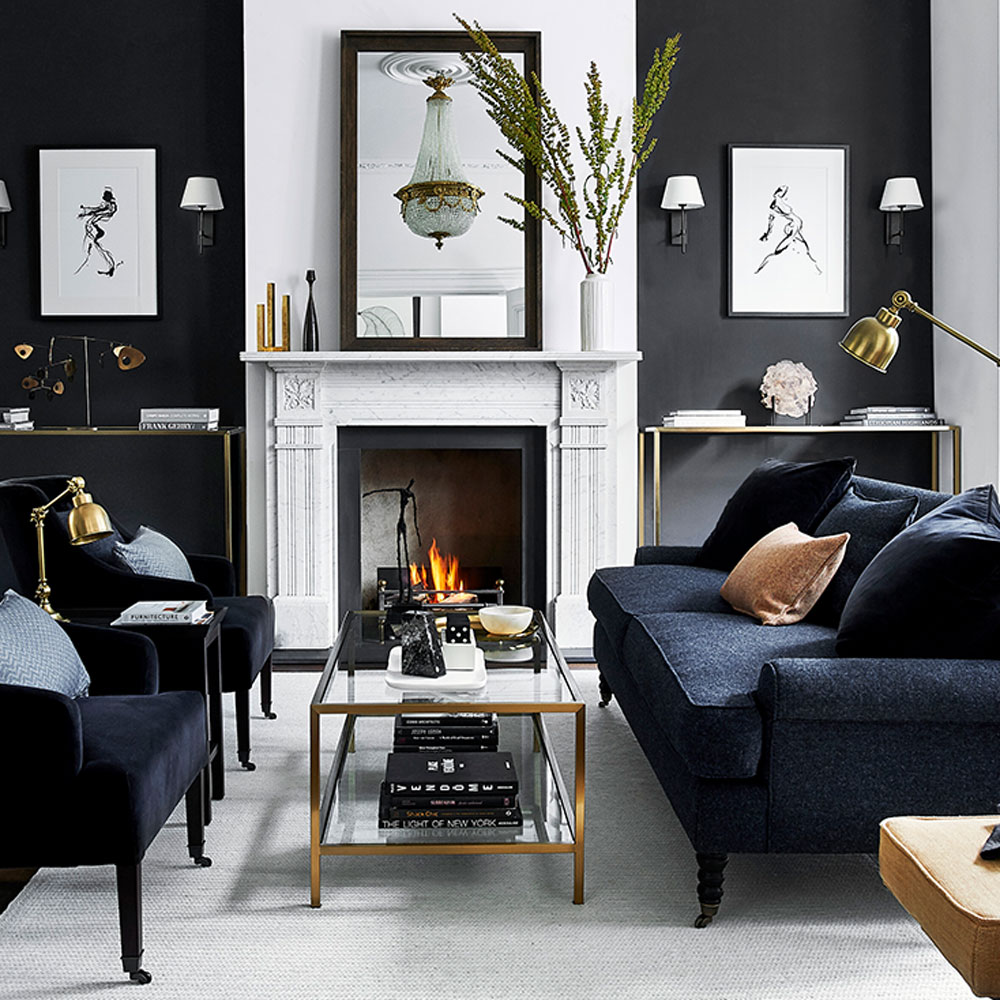
When planning living room sofa ideas the first thing you need to consider is how you will use the room. If you are aiming to create a peaceful space for reading and chatting this will filter into the choice and placement of your sofas.
Get the Ideal Home Newsletter
Sign up to our newsletter for style and decor inspiration, house makeovers, project advice and more.
'You may be planning a serene sitting room, in which case two occasional sofas facing each other would work nicely,’ explains Charlie Marshall, Loaf Founder. Occasional sofas will add a sense of occasion in a more formal living room. Amplify the calming atmosphere with a minimal palette and moody shades.
2. Opt for slim arms in a small living room
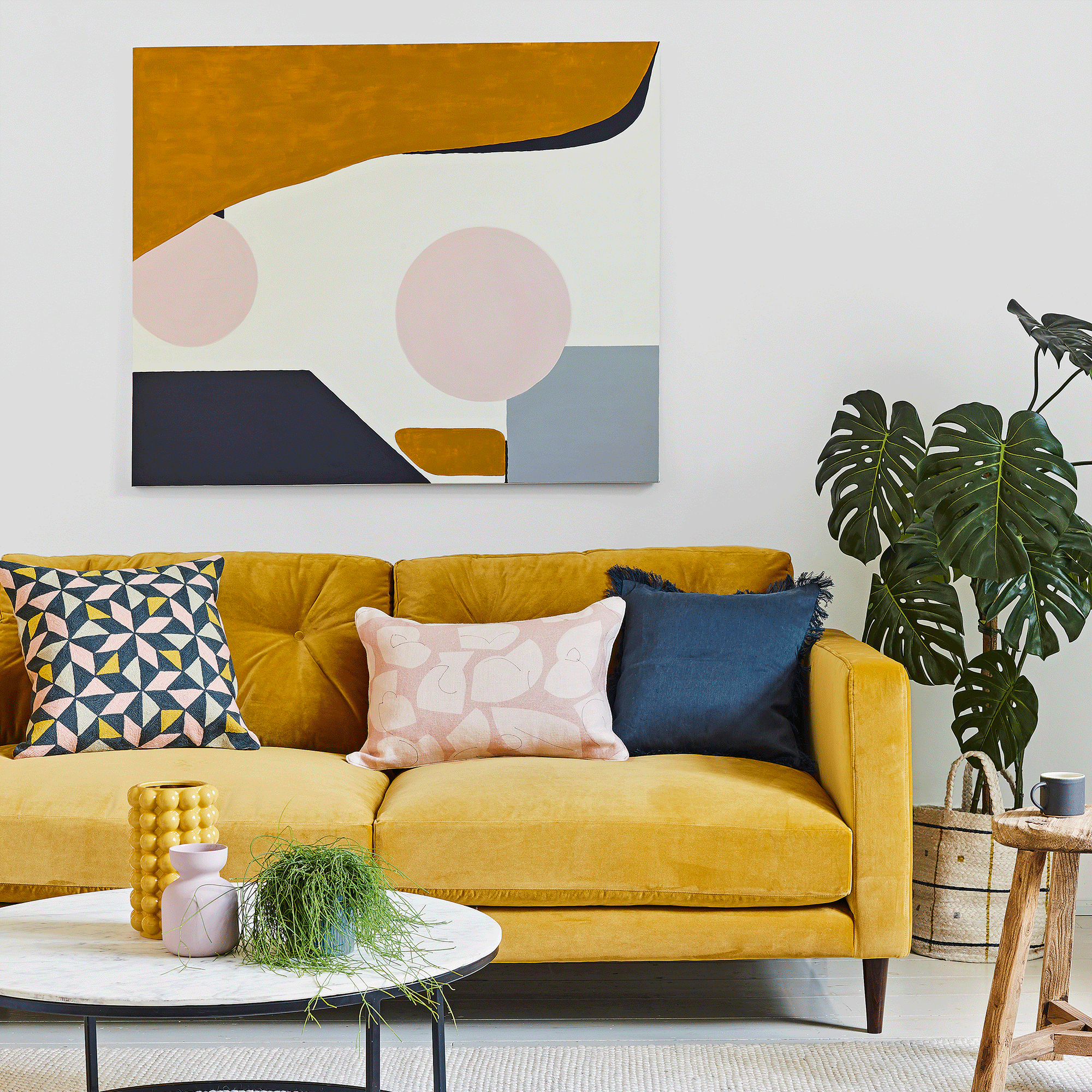
Sofa ideas for small living rooms can be especially tricky to navigate, however, carefully considering the design of the sofa will make all the difference.
‘Slim arms and smaller proportions feel less imposing and, as every inch counts, look out for straight backs that can sit flush against the wall. Elegant, tapered legs which raise the base from the floor help to create an illusion of space,’ says Gisela Lancaster, Buying Manager, Sofology.
3. Encourage conversation with modular furniture
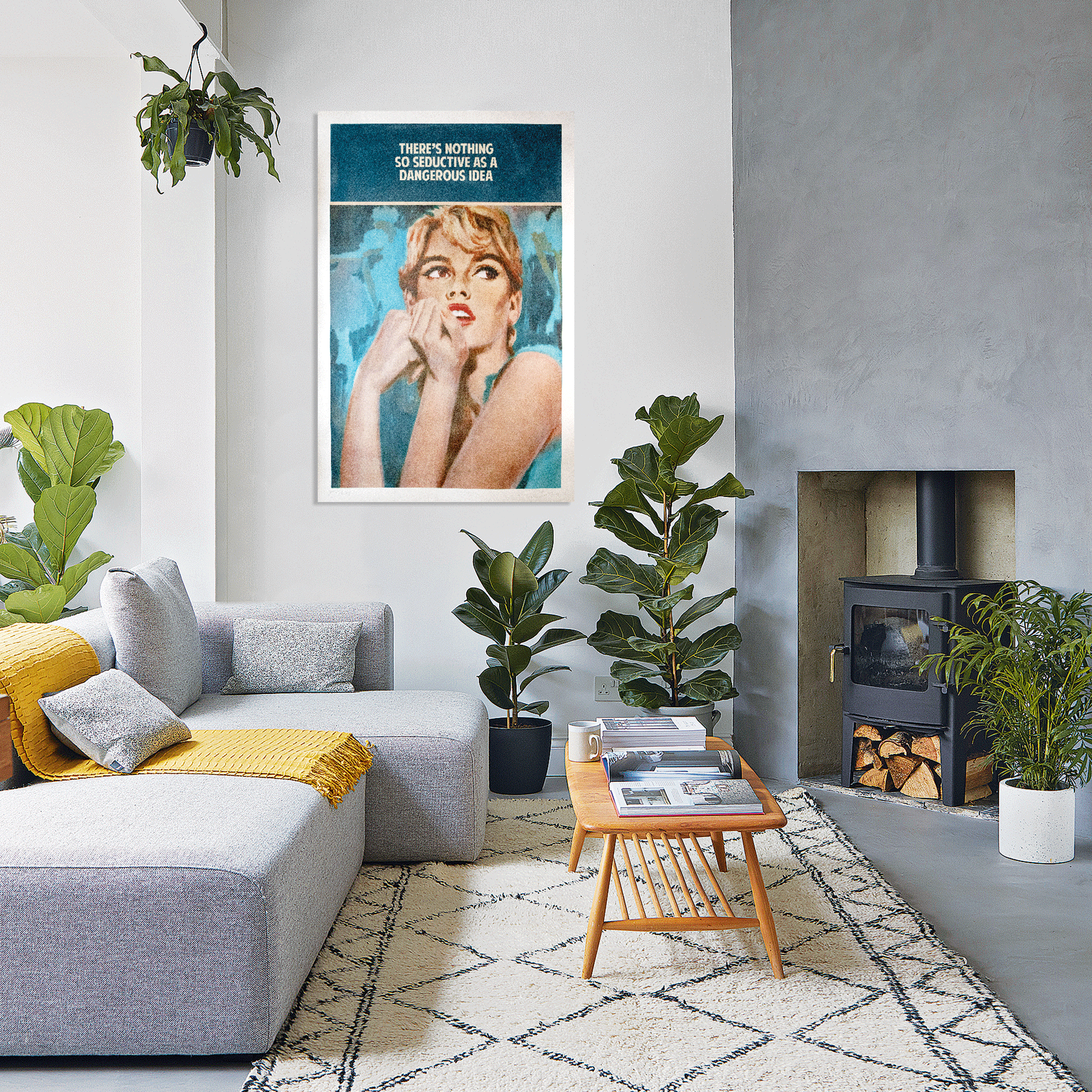
If you love to entertain it is a good idea to opt for a versatile sofa that can be moved around to help create the perfect party atmosphere. 'Modular slimline furniture allows you to play with the configuration. If you have friends over you can reposition the sections to create a more intimate configuration, which facilitates interaction and conversation,' says Gisela Lancaster at Sofology.
4. Embrace a trending teal sofa
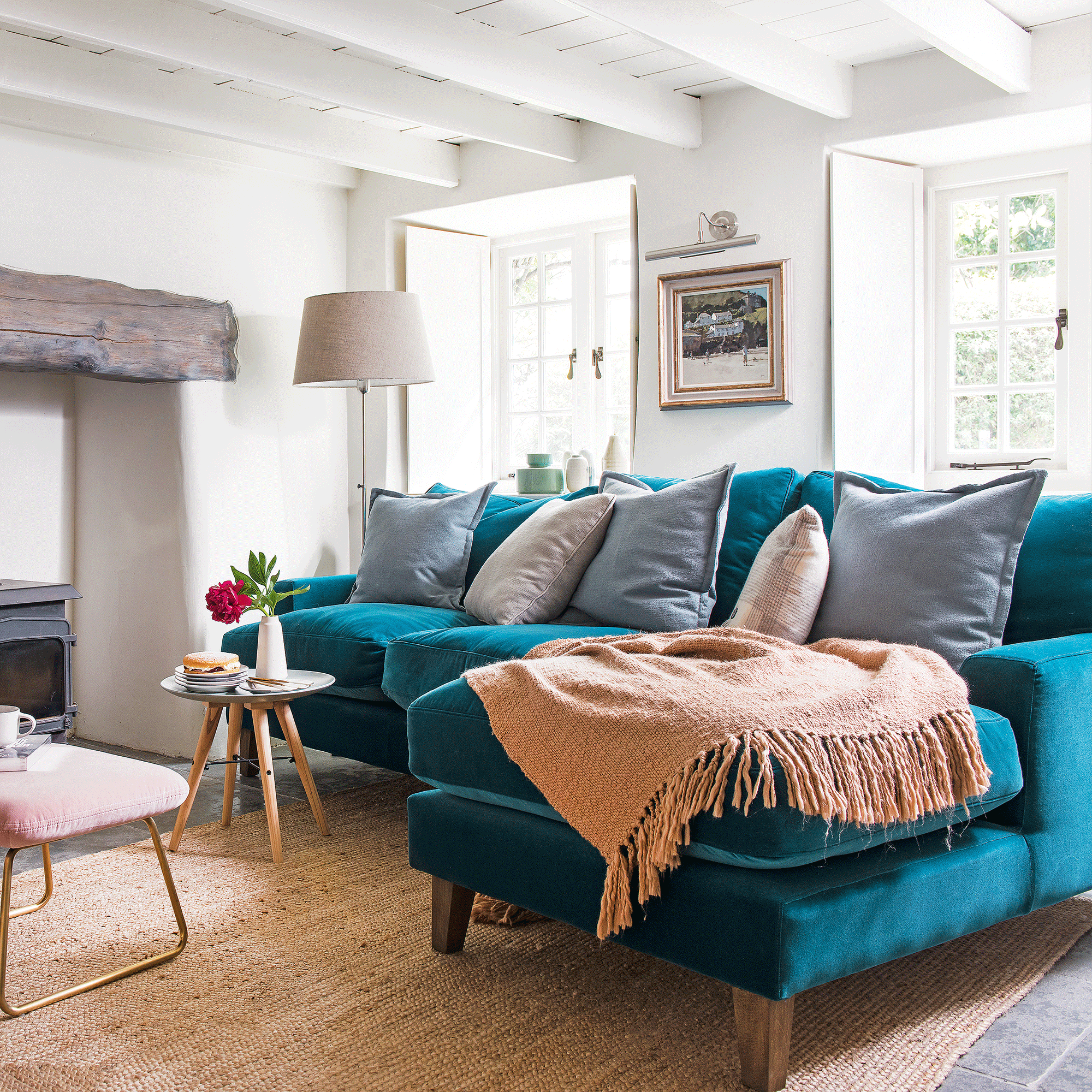
Teal could be just the thing to have you considering how much it costs to reupholster a sofa. ‘We’re currently seeing a shift in popularity from classic navy colours to more vibrant teals. Our Liquorice Blue clever velvet, a firm customer favourite, has recently been beaten from the number one fabric spot by our new Sopping Seagrass clever velvet, a beautiful teal hue.'
'Two other teal velvets, Rockpool and Teacup Teal are also now in the top 20 fabric choices, showing that there’s a real appetite for teal tones this year,’ says Charlie Marshall at Loaf.
5. Pile up the texture on a sofa in a large space
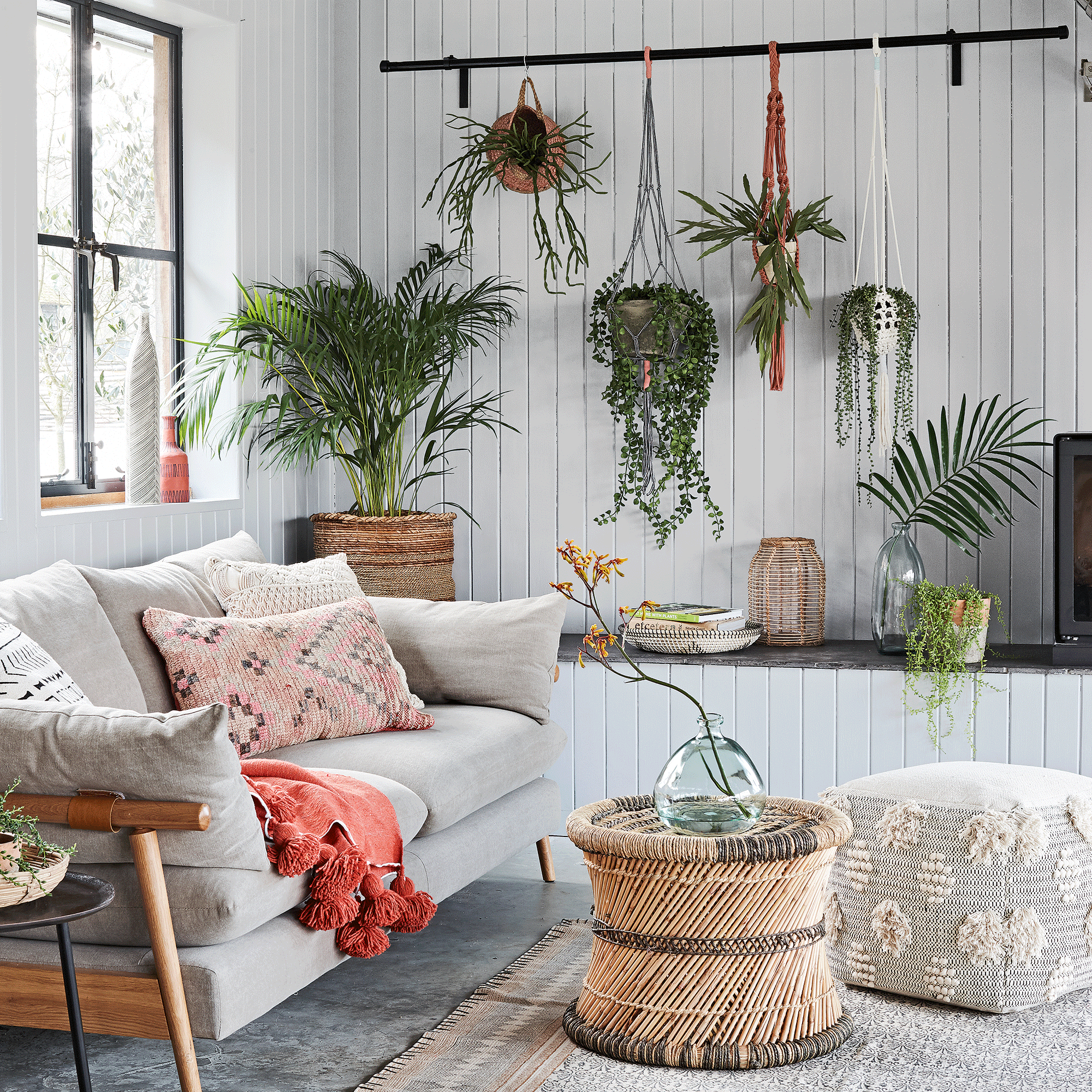
‘For larger spaces, creating a cosy atmosphere can sometimes be a challenge. Considering the texture and shape of a sofa are essential, statement sofas like Fernsby add both warmth and style. The abundance of cushions and soft recycled velvet effortlessly fuses a balance of comfort, practicality and stylish design,’ says Elizabeth Sladen, Head of Buying (Indoor Furniture) at MADE.com.
Alternatively, if you prefer to keep your sofa more discreet or are looking to update your existing sofa, opt for plenty of textural furnishings. A pouffe is a smart addition to add texture and extra seating space.
6. Echo period features in the sofa shape
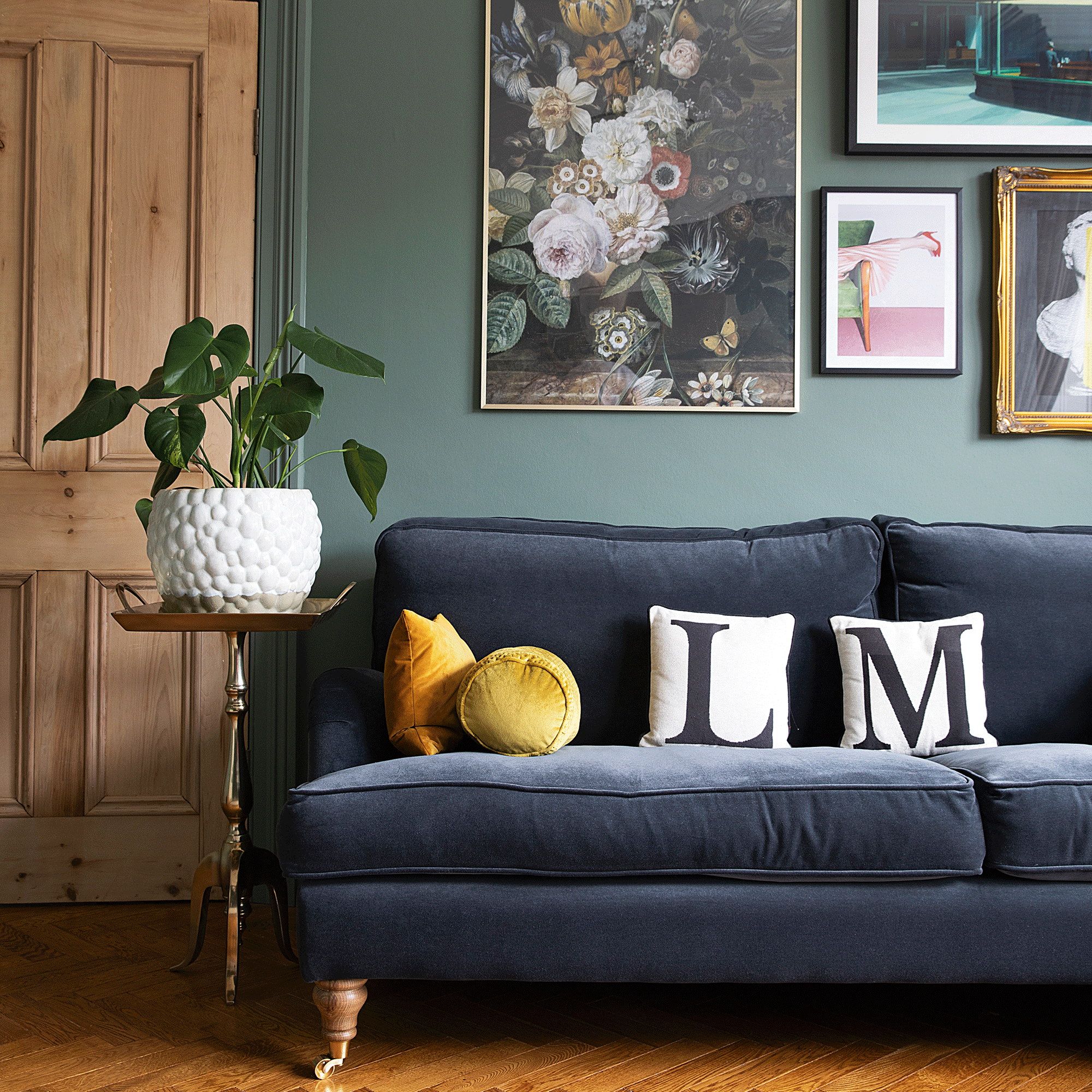
If you've invested in a Georgian or Victorian home and gone to pains to preserve the period features, don't throw this all out when it comes to choosing the sofa. Pay homage to the past in the shape and style of the sofa you choose.
‘Reflecting the time period of the property and its original features is important. For those with a Victorian property, tap into the property’s accents and traditional British design with opulent pieces of furniture with lacquered legs,’ says Elizabeth Sladen at MADE.com.
7. Conceal a sofa bed
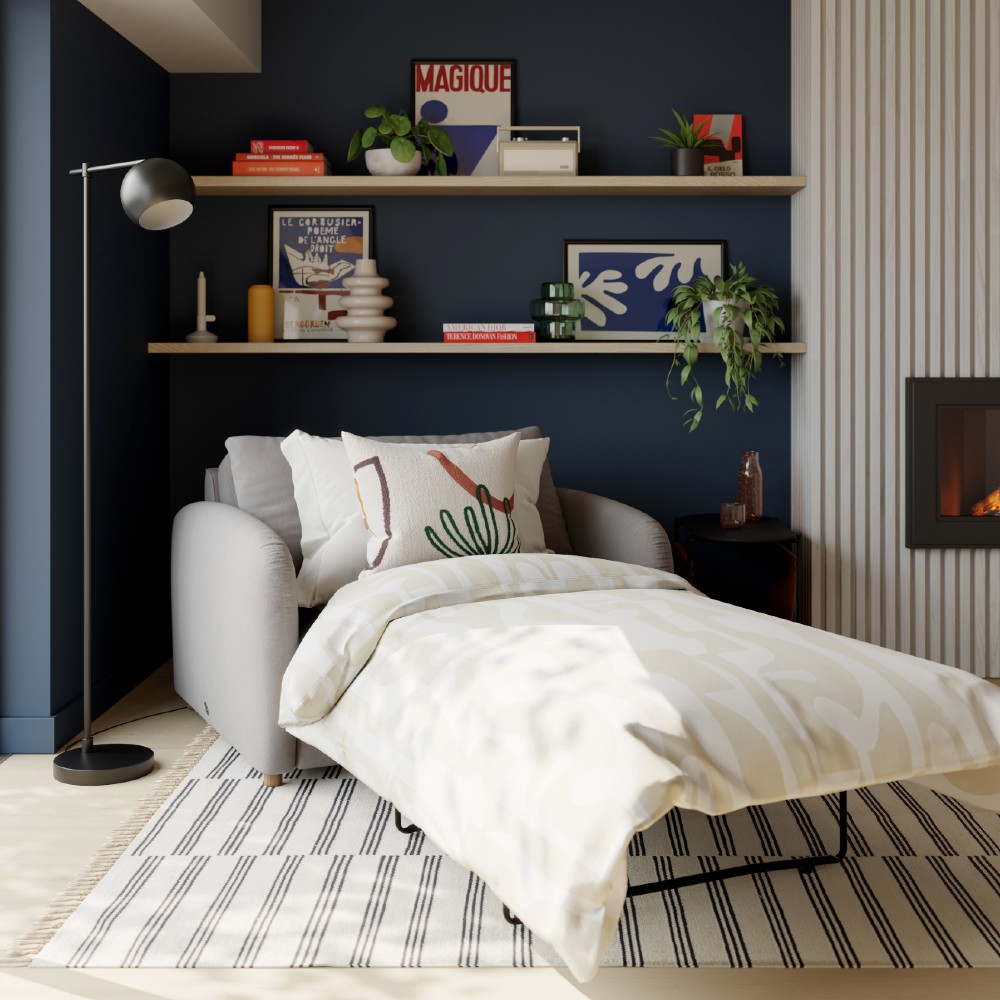
If you're short on guest rooms, including a sofa bed is a smart solution for turning your living room into a last-minute bedroom. Sofa beds have come a long way since when they were first introduced. Once considered unsightly, the best sofa beds are both comfortable and stylish, slipping seamlessly into a living room.
8. Colour match accent cushions and accessories
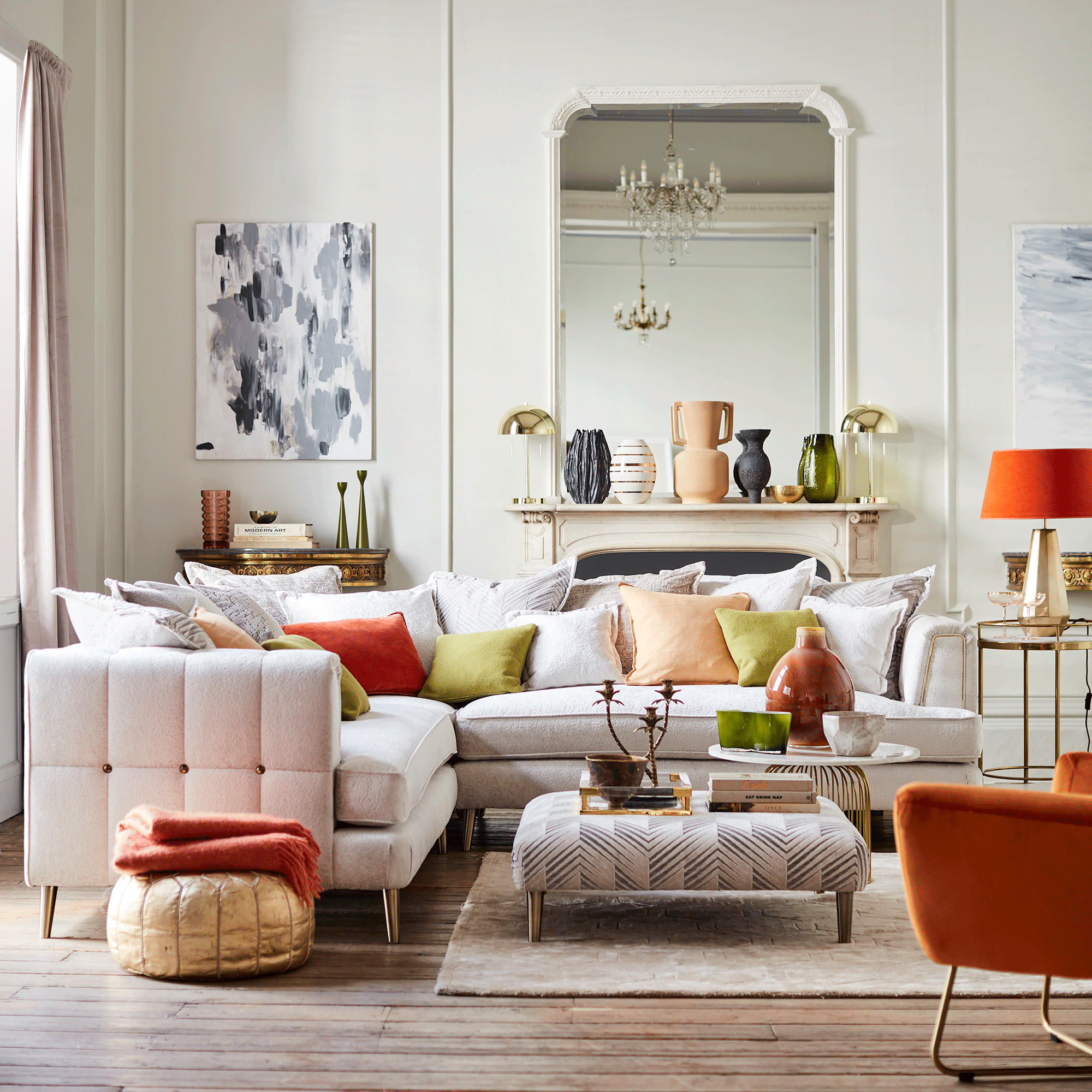
If you regularly enjoy updating your living room consider keeping your sofa and other large furnishings within a neutral palette, and leave the colour and texture to the other accessories.
This might not sound like a groundbreaking tip, but there is an art in creating a well-balanced colourful living room, with a white sofa at its heart. The key is in colour matching key accent accessories to the scatter cushions. For example, in this image, the beige vase on the mantle piece is a perfect match for the sofa cushion, while the vibrant pop of orange ties the occasional chair, lampshade and sofa together.
It is important to consider the rule of three and the balance of colour in the room when choosing how many cushions of each colour to go for. A good rule of thumb is the more times an accent colour is repeated in the rest of the room, the fewer cushions you need to tie it into the scheme.
9. Mix and match cushions with the rule of three
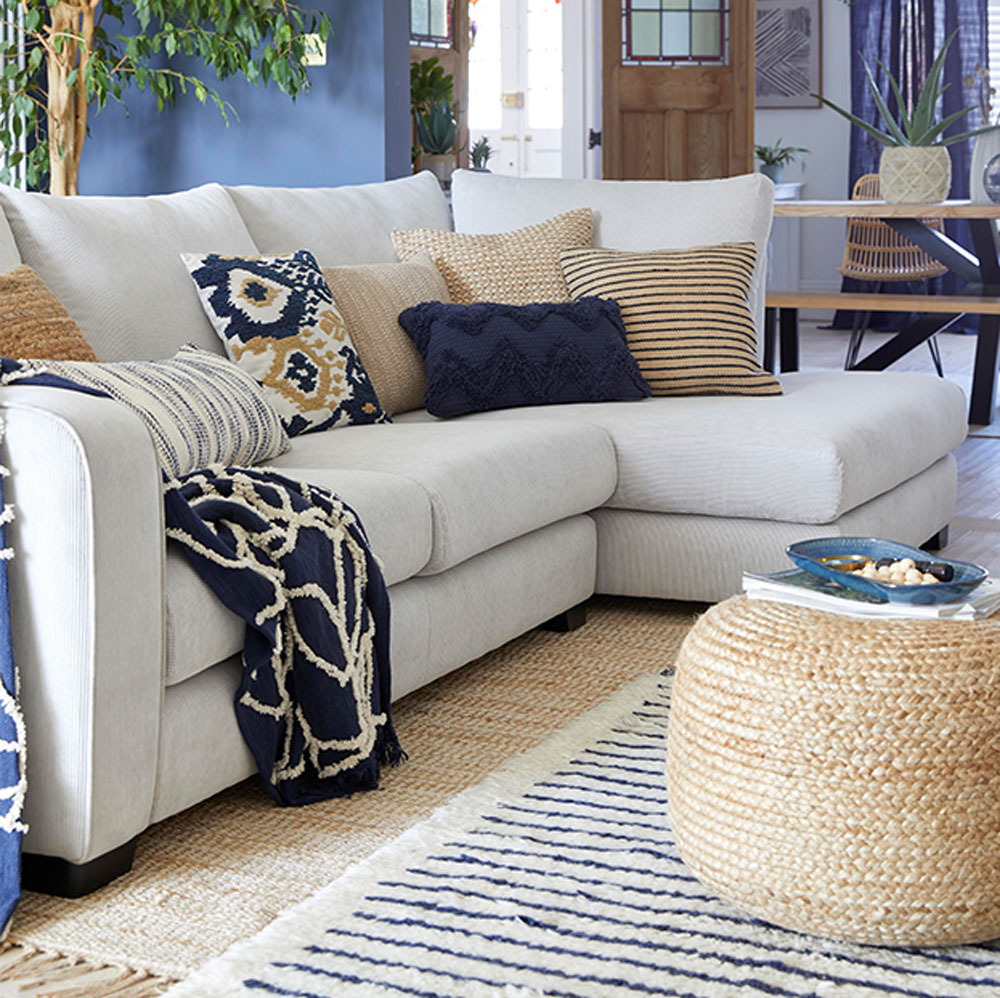
Rather than throwing a pile of cushions on the sofa and hoping for the best, try a technique that stylists use to make their sofas look a million dollars.
When it comes to colours, simply follow the rule of three. Be lead by the room’s colour palette and use three colours pulled from different areas of the room, such as wall colour, curtains and perhaps a rug or flooring. Mix and match these three colours for your cushions, using plains, mini weaves and larger-scale patterns, but keeping to the same three colours for a cohesive look.
‘As upholstery pieces are the bigger items in a space, they tend to require a little more thought in terms of colour and fabric pairings,’ says Patricia Gibbons on the Design Team at Sofa.com.
‘If you’re searching for something that will instantly refresh the feel of a room, switch up your cushions, choosing hues that reflect the season. This is a quick way to add in a new splash of colour and update the overall aesthetics of a room without splurging on a sofa.’
10. Make a statement with a standout colour
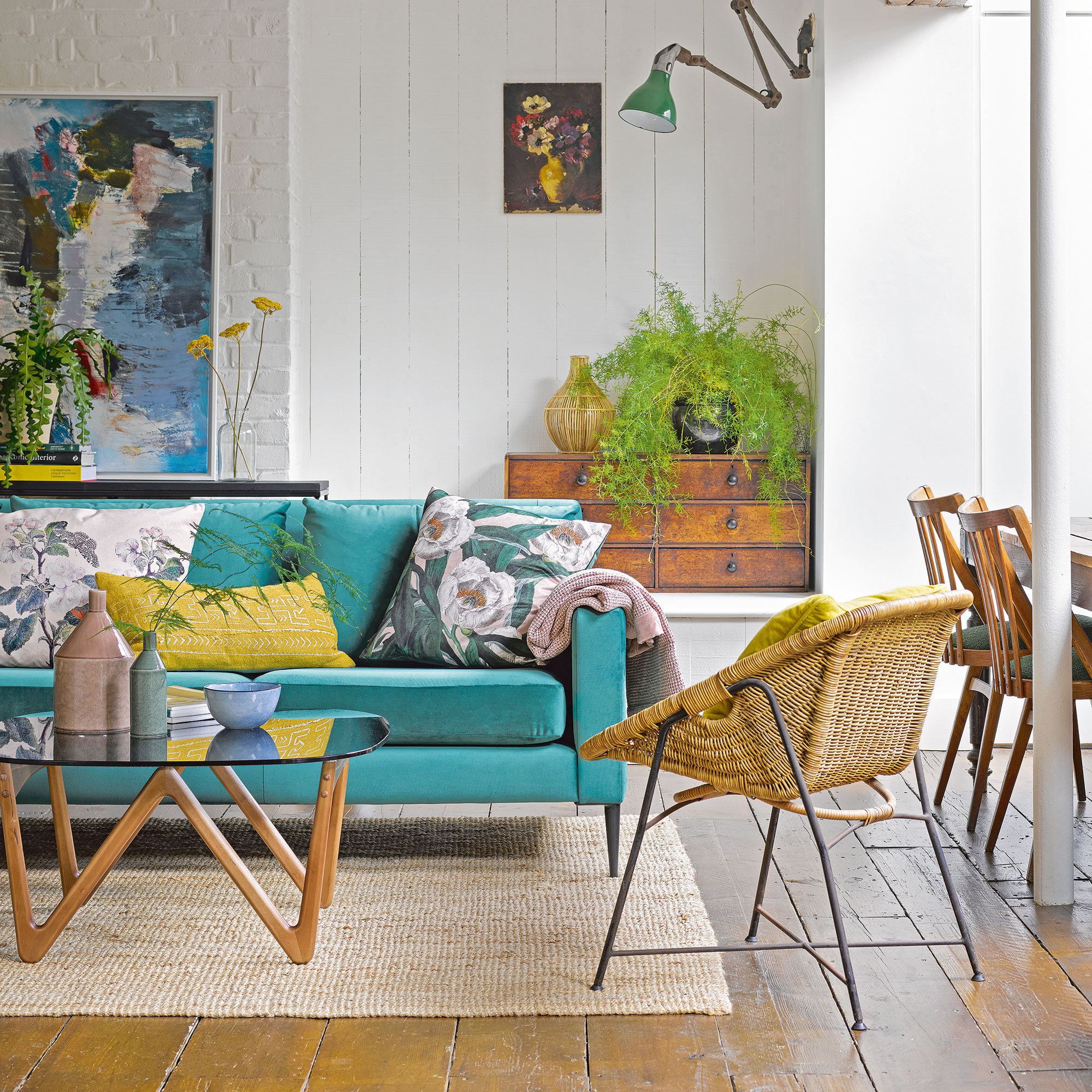
Forget safe neutrals and make your living room sofa the focal point by choosing a bold, standout colour such as lime green or emerald green sofa ideas. Bright colours can energise a space and be a real mood lifter. Let the sofa colour be the starting point for your colour scheme and bring in soft furnishings and extra accent pieces in complementary colours of equal intensity.
‘From a style perspective, remember that a sofa is often the centrepiece of the room, says Suzy McMahon, Buying Director at Sofology. ‘A new upholstery piece is the perfect opportunity to add personality and colour so consider this when browsing designs.’
‘It’s tempting to pick a neutral style or colour on the basis that you may redecorate, however when investing in a new piece, it's worth opting for a design and fabric that you’ll love for many years to come to increase its longevity.’
11. Lift a neutral sofa with colour accents
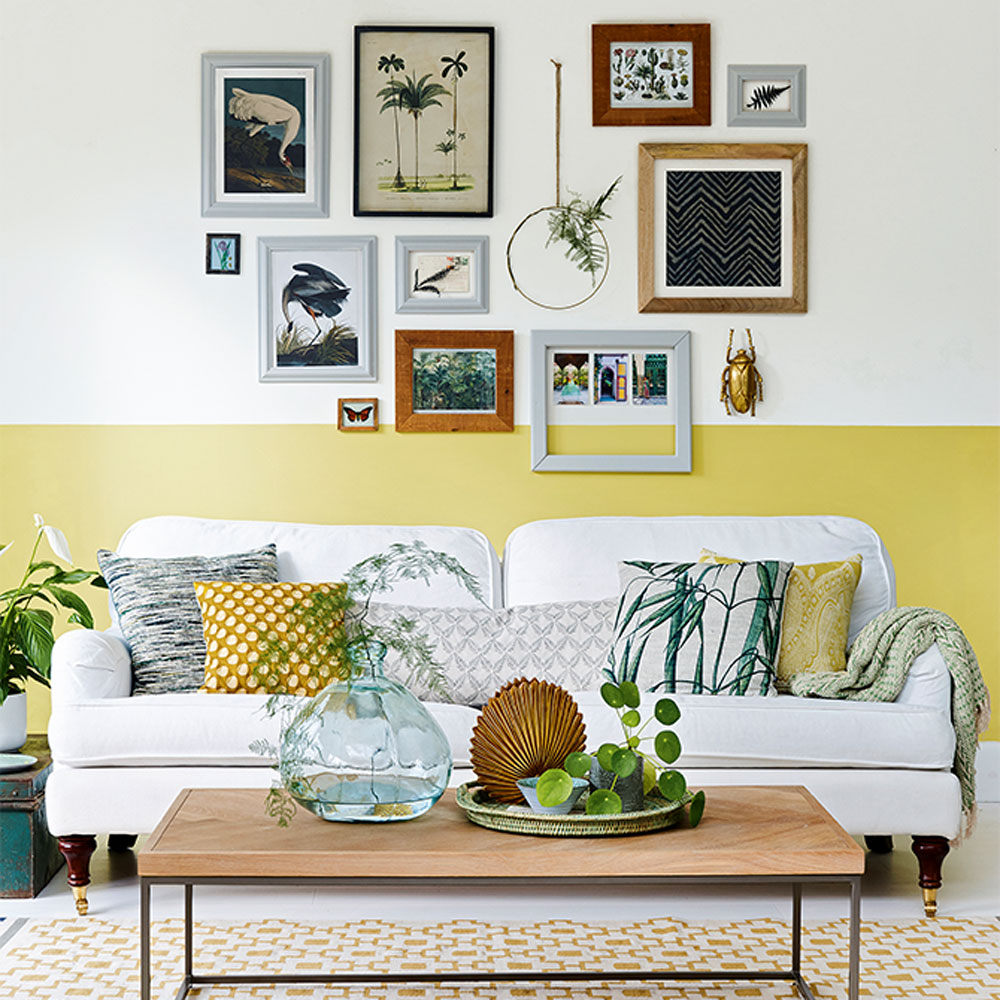
While bright colours are certainly more eye-catching than neutrals, in terms of versatility, neutral sofas are hard to beat. A neutral sofa makes a great base for any living room sofa ideas scheme, around which you can create a variety of different looks and colour themes.
Dress up a neutral sofa with a line-up of colourful cushions and throws, mixing and matching different patterns and colour combinations. Don’t leave it there though, extend your colour theme to include artwork on the wall above the sofa in cheery, complementary tones and bring in a brightly patterned rug in front of the sofa to tie the look together.
12. Create a sociable seating arrangement
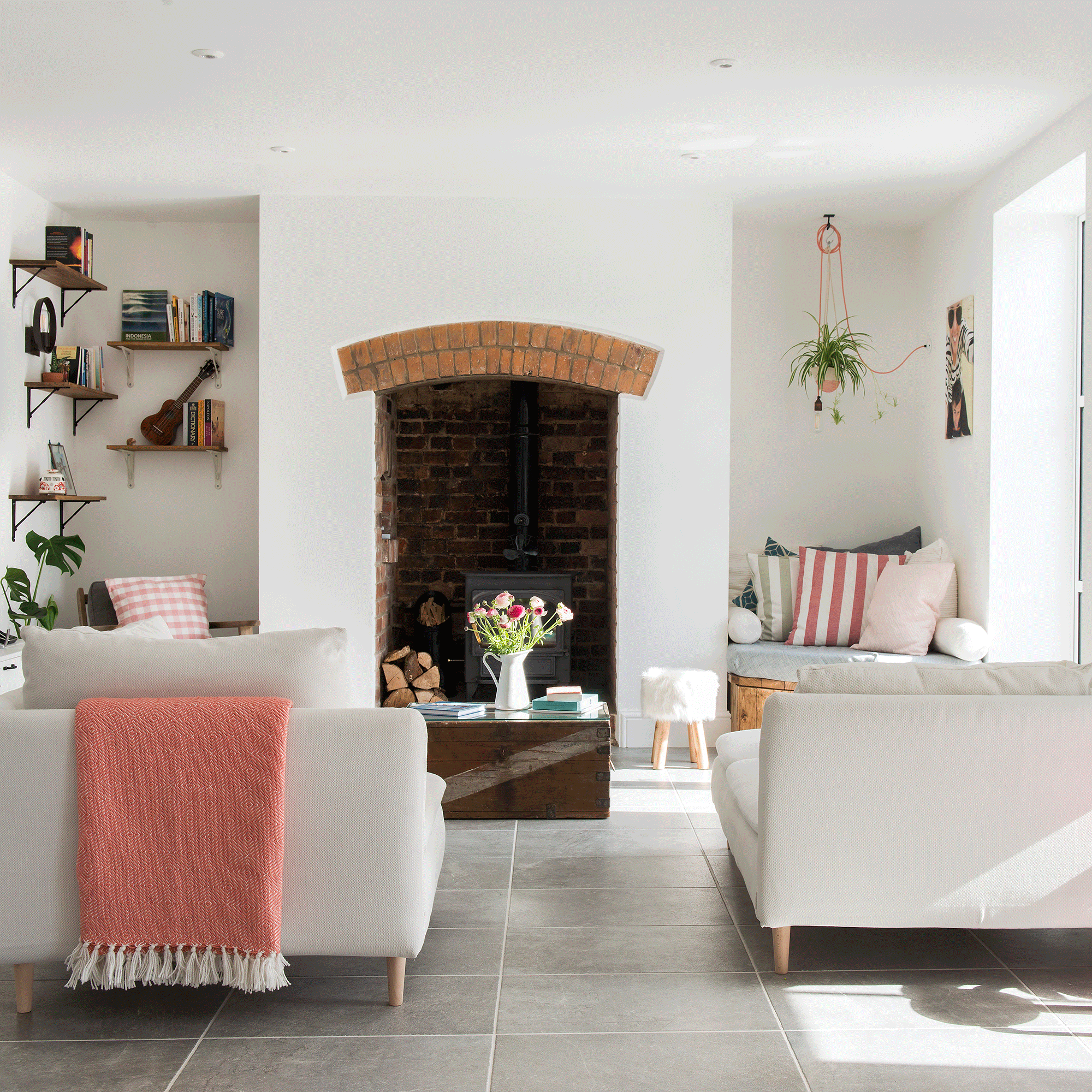
Create symmetry in a living room by using the sofa as an anchor point around which to arrange other furniture.
‘Many homes will naturally have all the seating facing the TV, but by simply adjusting the seating so that it’s facing each other, it will completely transform the space into an area for conversation,’ says Charlie Marshall, founder of Loaf.
‘The balance of two sofas facing each other, or even a sofa and two armchairs, will always be visually appealing. If it’s a family room, it’s likely that the sofa will be a main feature – and this could be a corner sofa or chaise. Create balance with a coffee table or storage footstool and an armchair or love seat to one side, which adds weight. The trick is not to group too much furniture in one area.’
13. Zone living space with a corner sofa
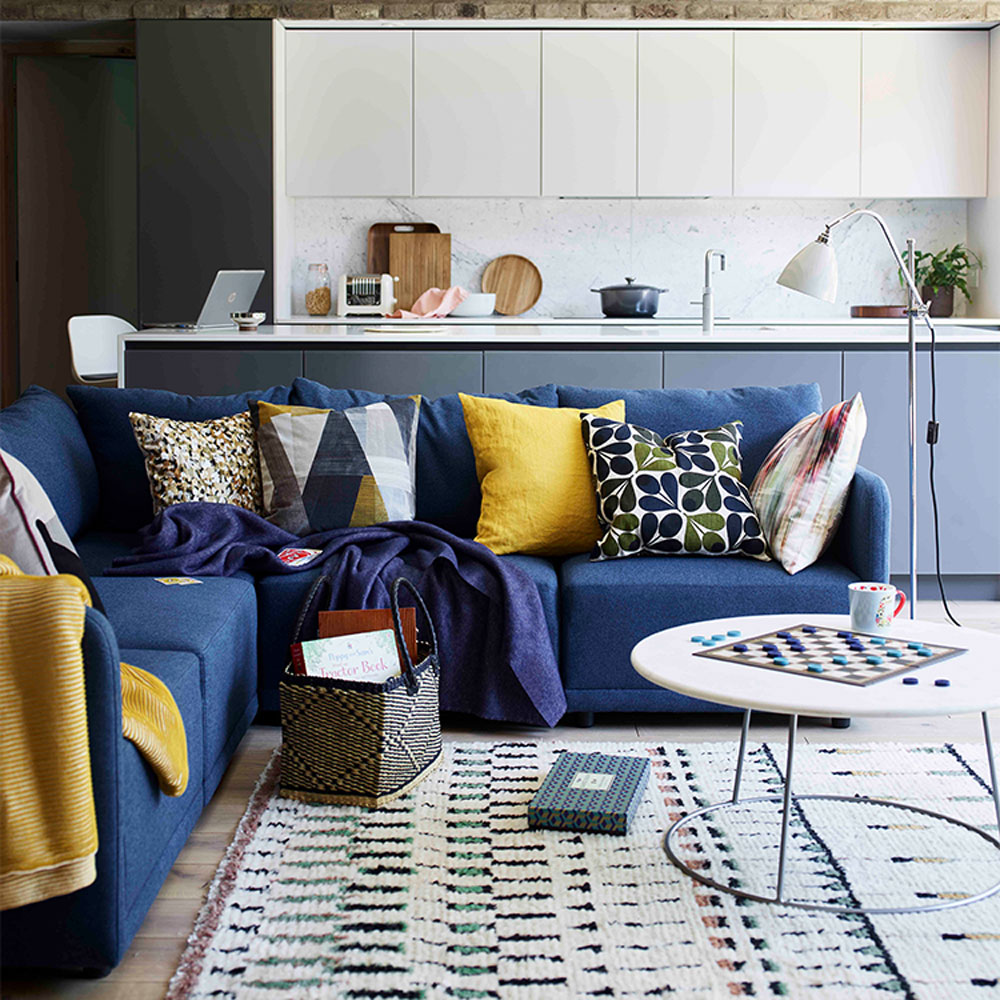
Clever furniture placement is an easy way of breaking up a large area, such as an open-plan living space. Use a corner sofa to create a cosy living room idea within a larger space, with the back of the sofa acting as a room divider. Bring in a large rug as an anchor point, choosing a colourful pattern that co-ordinates with sofa scatter cushions.
‘In a flexible space, there are some pieces of furniture that will work harder than others, so it‘s important to shop wisely and choose something that you love,’ says Jason Billings-Cray of John Lewis & Partners. ‘Use a corner sofa to section off a zone, choosing a mid-dark colour that will withstand its close proximity to the kitchen.’
‘Choose an adaptable palette for an open-plan space, saving colour and pattern for a separate room where you can go a little more crazy as you aren’t there the whole time.’
14. Pair a grey sofa with punchy brights
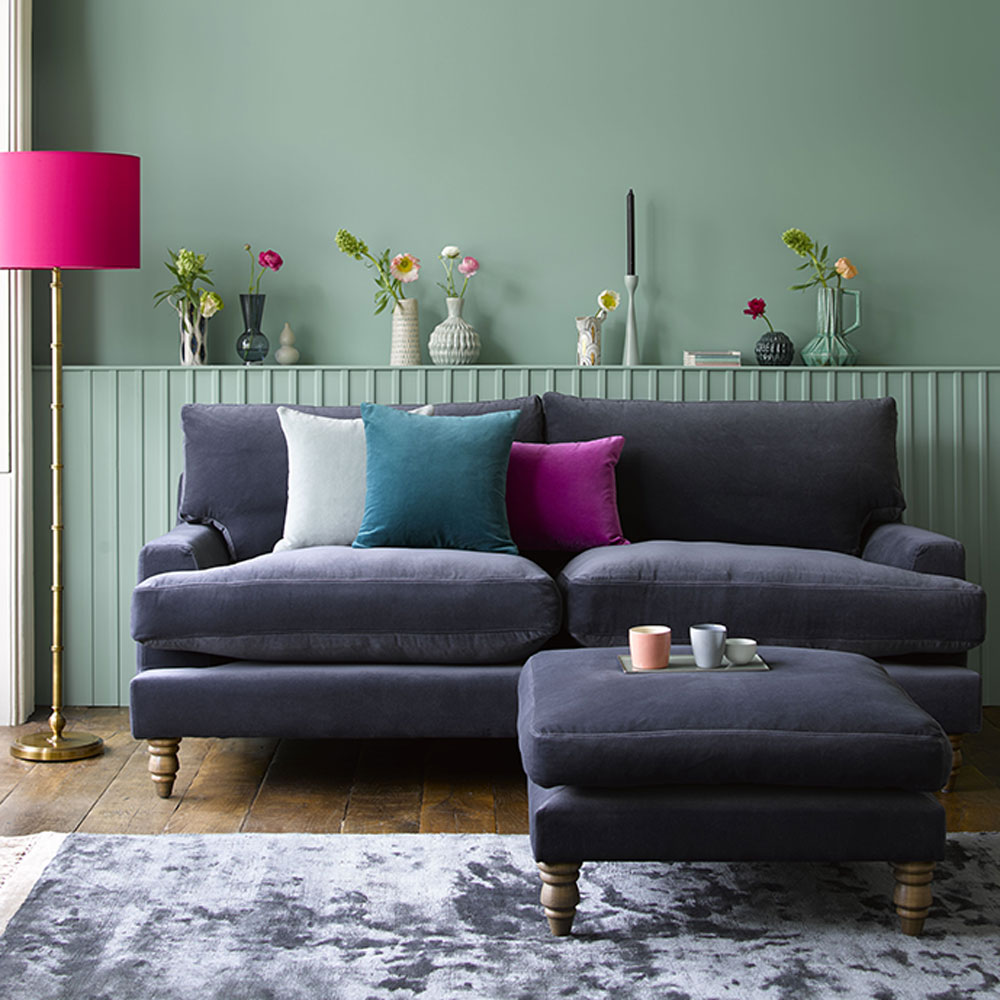
Bolder than neutrals, but calmer than brights, grey is one of the most popular colour options when it comes to sofas. Grey sofa living room ideas are plentiful, as grey tends to work as a neutral so can be partnered with a wide range of colour choices.
Grey comes in many variations, from pale and interesting to dark and dramatic. In a traditional setting, opt for a mid-toned grey, with a classic sofa shape and plush velvet upholstery for an elegant look. Team mid-toned grey with bright accent colours, such as jewel-toned cushions, plush throws, rugs and accessories
'The scale of your sofa is important,’ says Patricia Gibbons on the Design Team at Sofa.com. ‘Too big and it can feel like it engulfs the room, too small and you’ll be fighting over the best seat.’
‘Smaller rooms benefit from sofas with slimmer proportions and sleek silhouettes. Choose a model with elegant, tapered legs which raise the frame from the floor to give the illusion of more floor space. These larger scale pieces feel more statement and create an anchor to design around without overpowering a large living room. They also help zone, effectively acting as a room divider.’
15. Pick a rug that suits your sofa
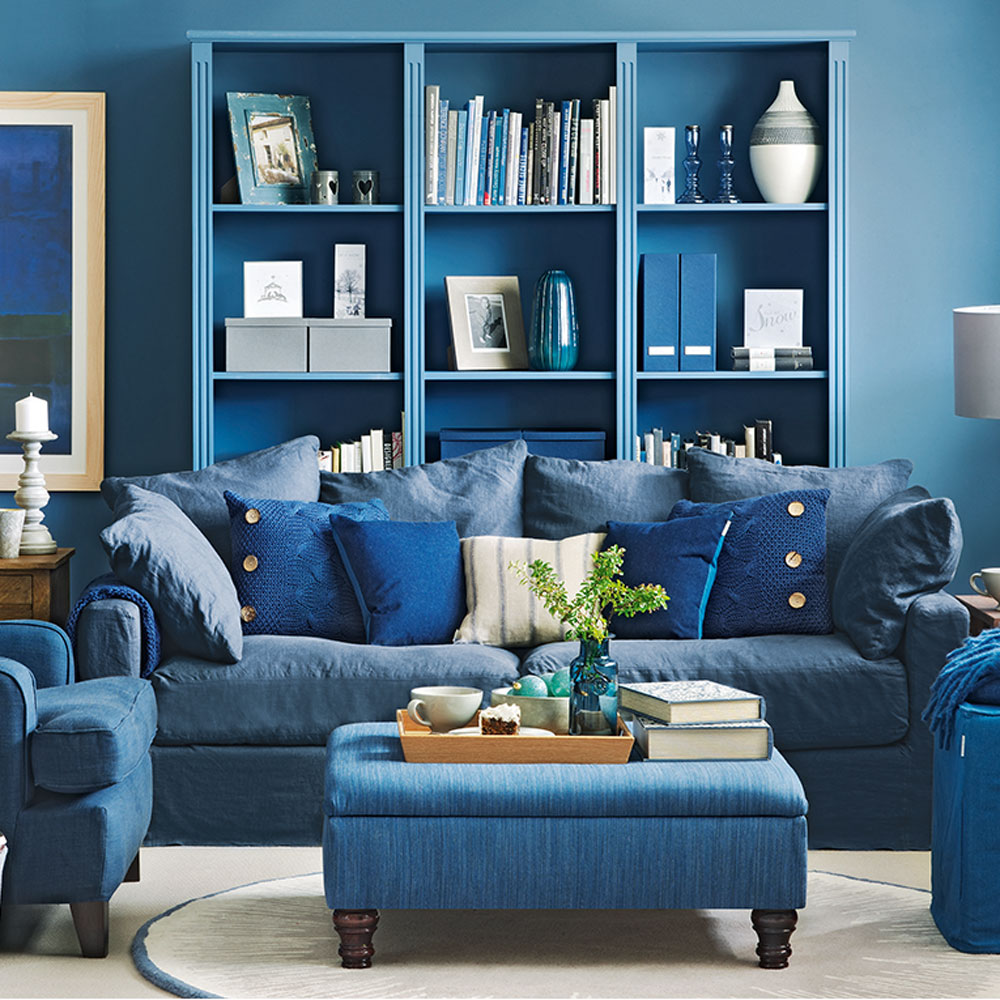
Choosing a rug to go in front of a sofa can be tricky and is easy to get wrong. ‘A living room rug can be used to define a living area and to combine sofa and chairs into one unit,’ say the rug experts at Benuta.
‘In a large living room, a spacious seating corner can be accentuated by a large, cuddly rug and create the perfect feel-good zone. With large rugs it makes sense to place all seating, like sofas and chairs, fully on the rug.’
‘If the living room is a little smaller, the rug should be proportionally smaller and only the front legs of the sofa or chairs should be placed on the rug. For small living room ideas, position the rug directly in front of seating, with small furniture such as a coffee table positioned directly on the rug.’
16. Bring balance with a colourful backdrop
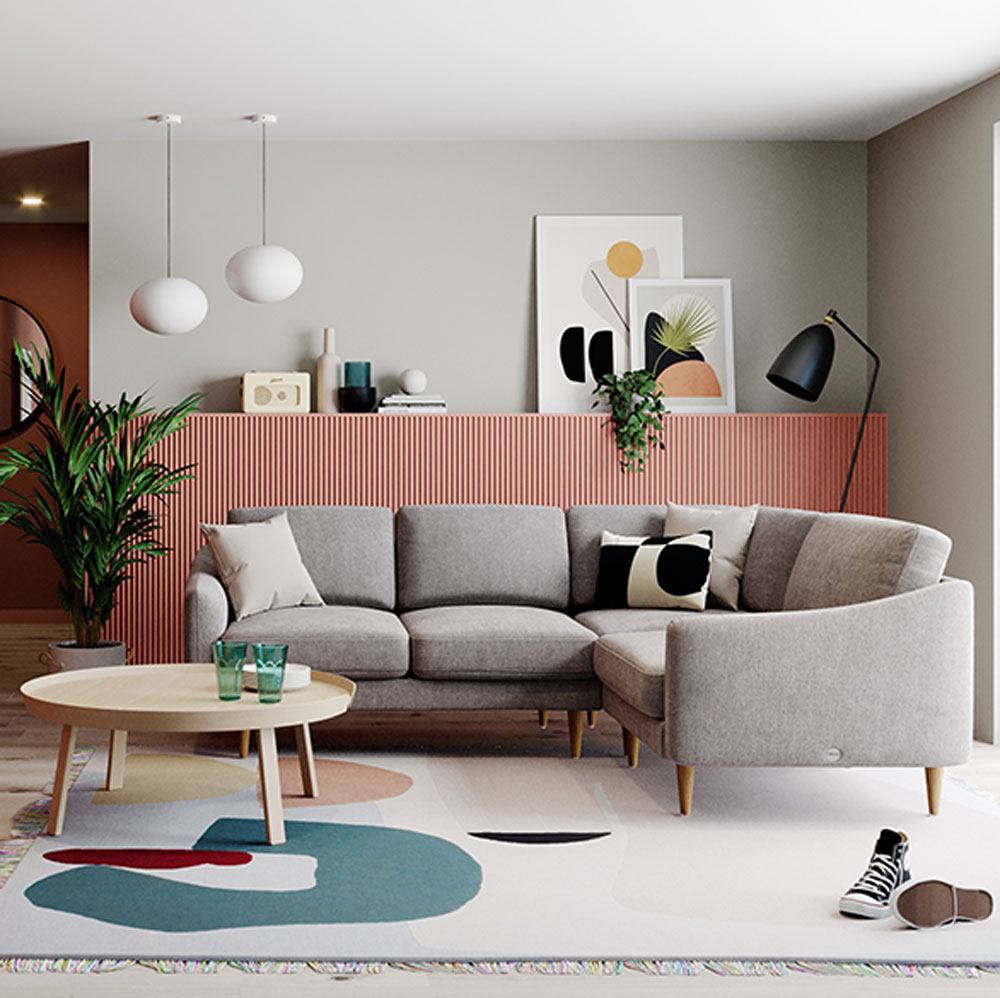
Neutral living rooms are relaxing and easy on the eye, but without any contrast colour or texture they can feel flat and lifeless if you’re not careful. Introducing a coloured panel behind a sofa will break up a plain wall and create a contrast backdrop for a seating area.
Try adding a false half wall or a panelled area behind a sofa that can be painted in a complementary tone. Running a narrow ledge along the top edge will give a display area that can be prettied up with colourful artwork, ceramics and ornaments.
Choose a muted shade for paintwork and tweak your existing colour scheme by bringing in extra touches that match the backdrop colour here and there on cushions, throws, rugs and artwork.
17. Wax lyrical with a quotation on the wall
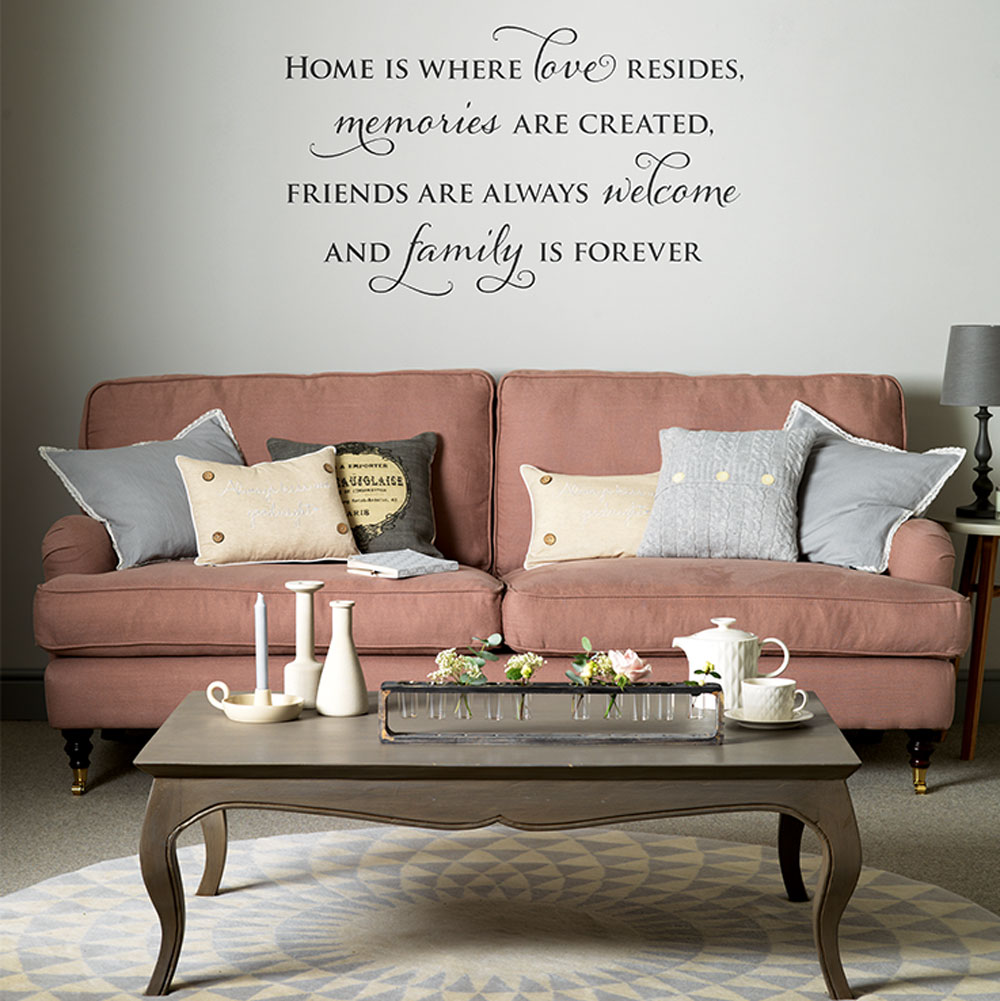
Think about decorating the wall behind the sofa as a another way of incorporating your new sofa into an existing scheme.
The empty area of wall space above a sofa is a prime spot for a piece of art work. As an alternative to pictures and prints, why not choose a heart-warming quotation instead. A line or two from a favourite poem or perhaps a saying that holds sentimental value with the family are both lovely ideas.
Use vinyl wall stickers to create your wordy wall art. Companies such as Etsy or Notonthehighstreet.com have a range of ready-made quotations ready to go up onto a wall, or you could have a bespoke piece made to order.
Size-wise, choose a piece that measures roughly two-thirds the width of the sofa and position letters dead centre to fill as much of the space above the sofa as you can.
18. Mix it up with multi-functional sofa seating
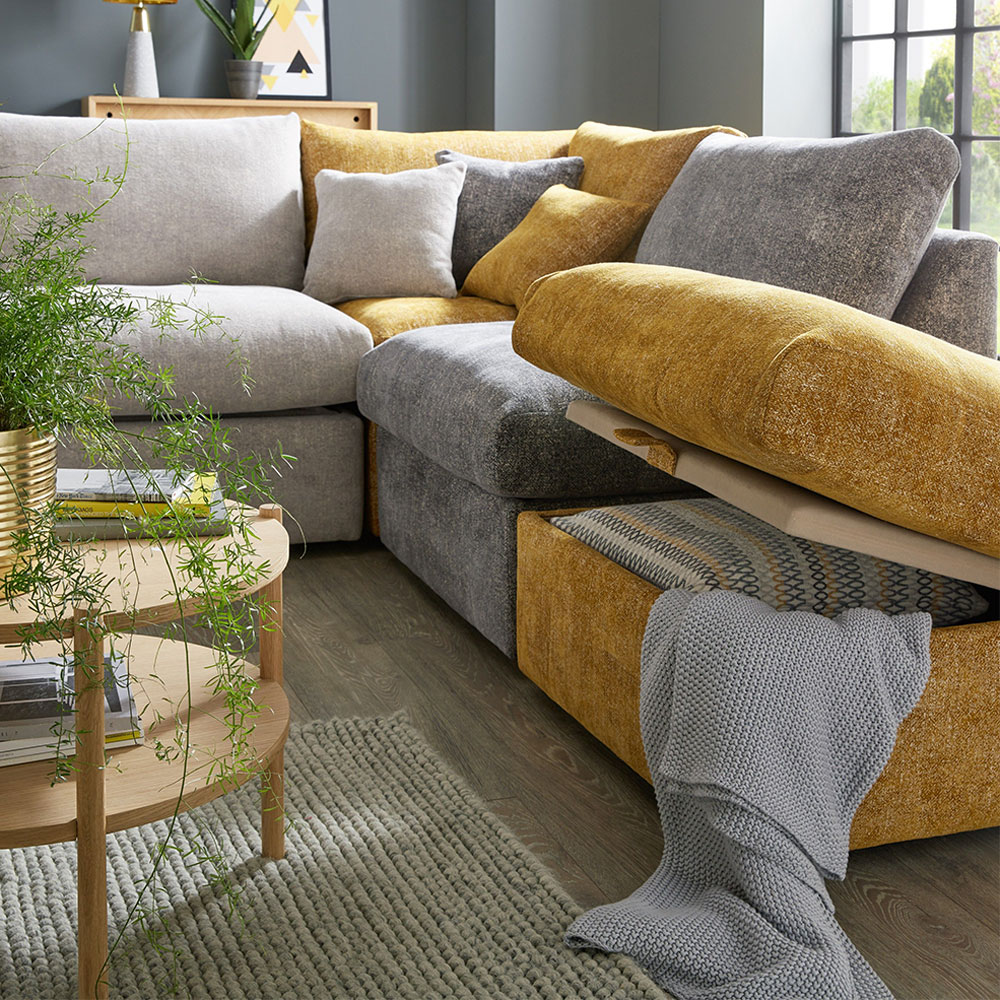
Sectional modular sofas are a fab idea for family living spaces as seating is easy to re-arrange or add to as and when your needs change. Instead of a one-colour scheme, shake it up a little by going for a colourful mix of seating in a corner arrangement. Shades of soft grey teamed with mellow mustard, feel cosy and warm and is a fun choice for a family den or snug.
‘To maximise space without compromising comfort, consider a corner sofa or chaise,’ says Suzy McMahon, Buying Director at Sofology. ‘Not only are they great for relaxing, the length serves as an integrated footstool that saves additional space in the room. Selecting a style with hidden storage can also help to make the most of a small room, negating the need for additional bulky furniture in the area.’
How do I choose the right sofa for my room?
Selecting the perfect sofa is a very personal choice and will balance many factors including practicality, comfort, style and budget,' says Suzy McMahon, Buying Director at Sofology. 'The initial practical considerations are fairly straightforward; think about the space you have in your room, how many you would like to seat and the level of support you prefer.'
'Make sure you measure your room accurately and, if you have an existing sofa, use that as a benchmark to understand any differing dimensions of a new model. A good tip, in an empty room, is to lay down newspapers to help you visualise the footprint the sofa will use' advises Suzy.
'Don’t forget when considering sizing you’ll need to allow for leg room and space to move around the sofa. Additionally you’ll need to think about how you will get the sofa into the home. Delivery is a key stage in the process so make sure hallways and doors are wide enough to accommodate your sofa.'
What direction should a sofa be placed?
This depends on the size, shape and the architectural features of your living room as often these will dictate where the sofa has to go. A general rule is to position the sofa facing the room's main focal point, such as a fireplace, window or even the TV. But in a room that has no natural focal point, it can be tricky.
Always consider the balance of the room before positioning the sofa. Too many visually-heavy pieces of furniture on one side of the living room will make it feel unbalanced. A sofa tends to be quite large and hefty, so try to even this out by positioning the sofa on one side with armchairs opposite.
If you have a coffee table positioned between the two, leave a little breathing space around to give the room a better sense of flow and so not to impede traffic.

Lisa is Deputy Editor of Style at Home magazine and regularly contributes to sister title Ideal Home. She has written about interiors for more than 25 years and about pretty much every area of the home, from shopping and decorating, crafts and DIY to real home transformations and kitchen and bathroom makeovers. Homes and interiors have always been a passion and she never tires of nosying around gorgeous homes, whether on TV, online, in print or in person.
-
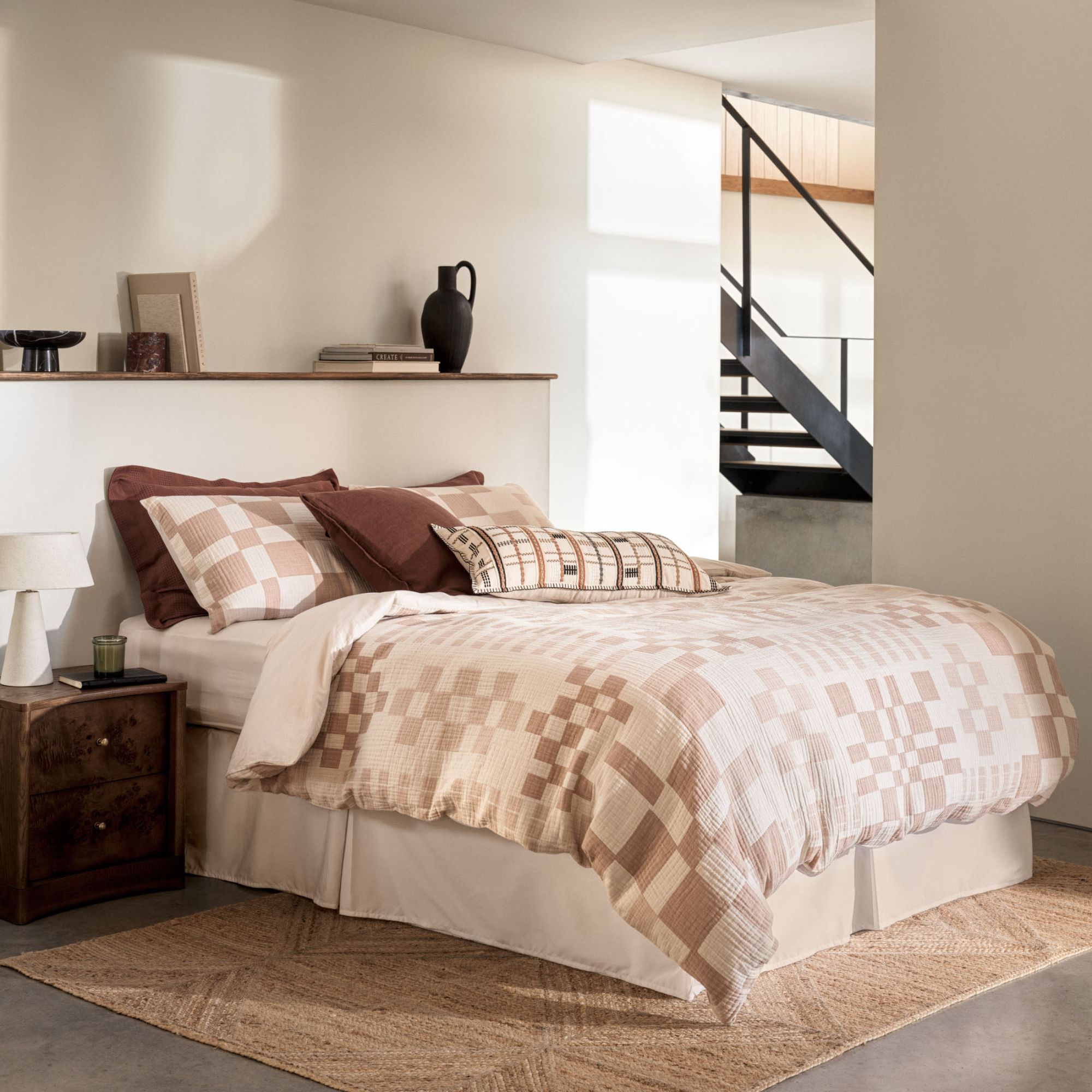 As a stylist, I spend hours looking for bedding for photoshoots, and I just spotted these 6 expensive-looking sets at M&S
As a stylist, I spend hours looking for bedding for photoshoots, and I just spotted these 6 expensive-looking sets at M&SGet a little luxury at a high-street price
By Laurie Davidson
-
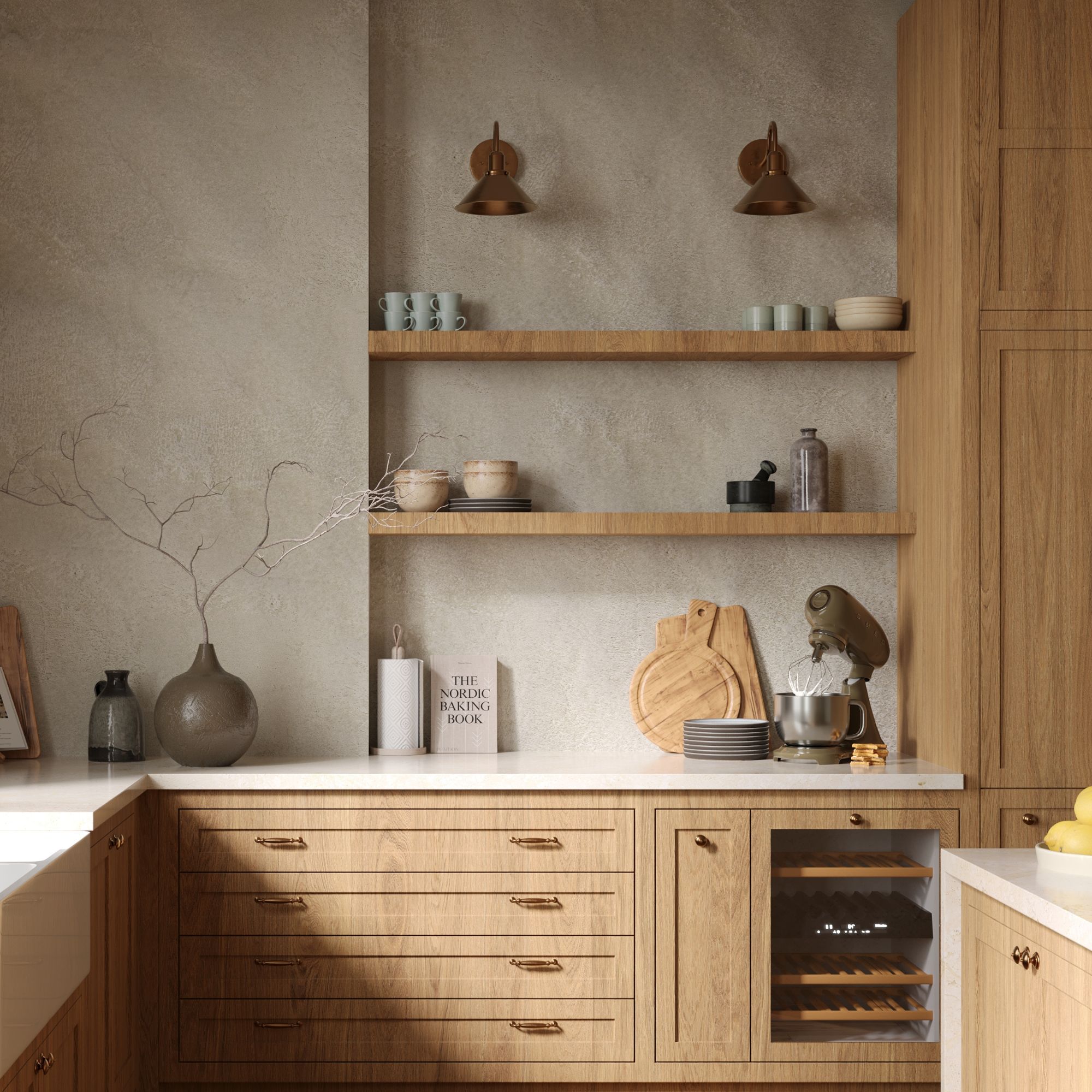 Wood drenching is the calming new twist on the colour drenching trend – here’s how to make the look work in your home
Wood drenching is the calming new twist on the colour drenching trend – here’s how to make the look work in your homeIt’s easier than ever to embrace natural materials
By Maddie Balcombe
-
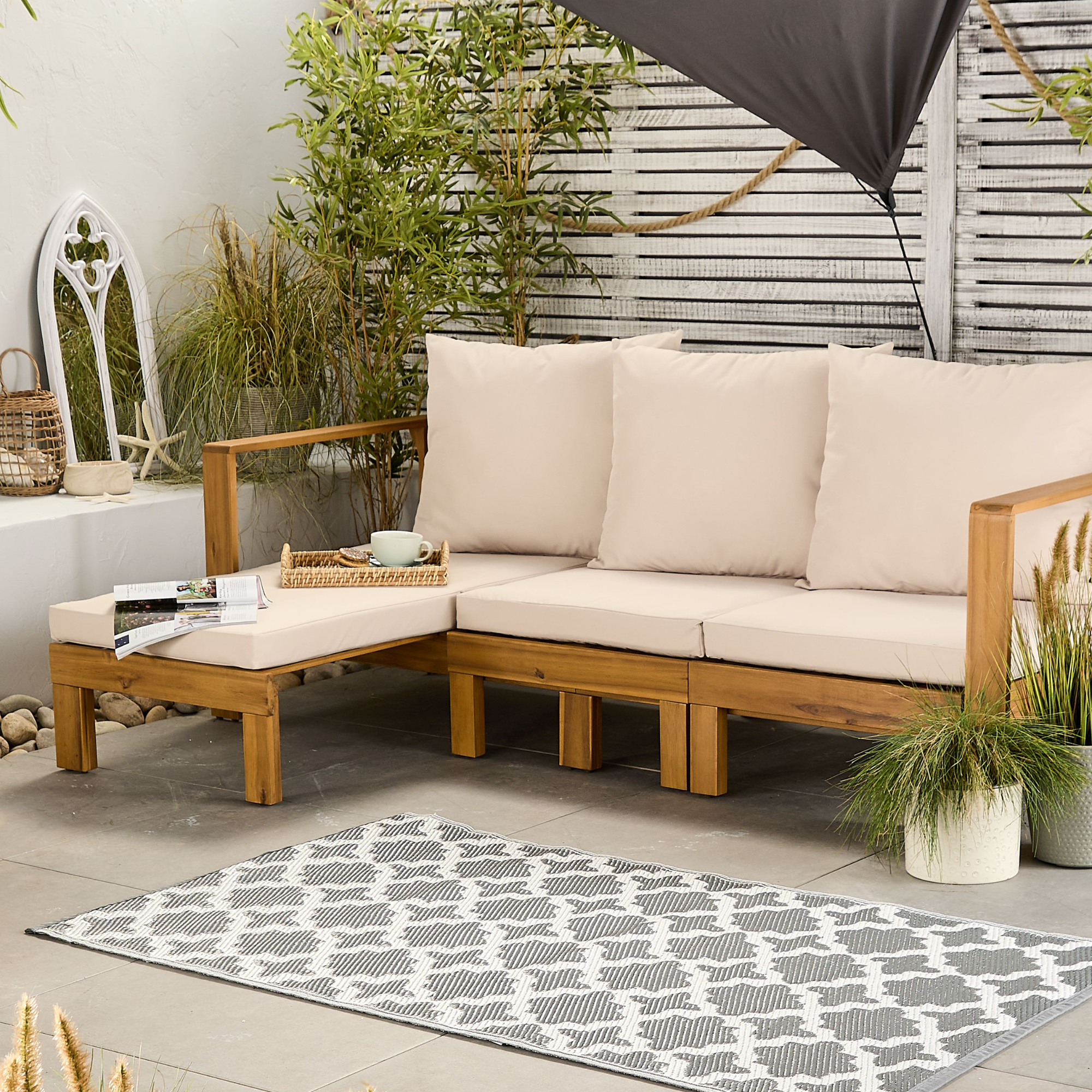 Aldi is launching a £200 day bed with four different features - its sleek design is suited to the whole family
Aldi is launching a £200 day bed with four different features - its sleek design is suited to the whole familyYou don't want to miss out on this Specialbuy
By Kezia Reynolds